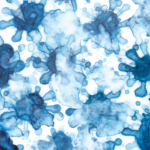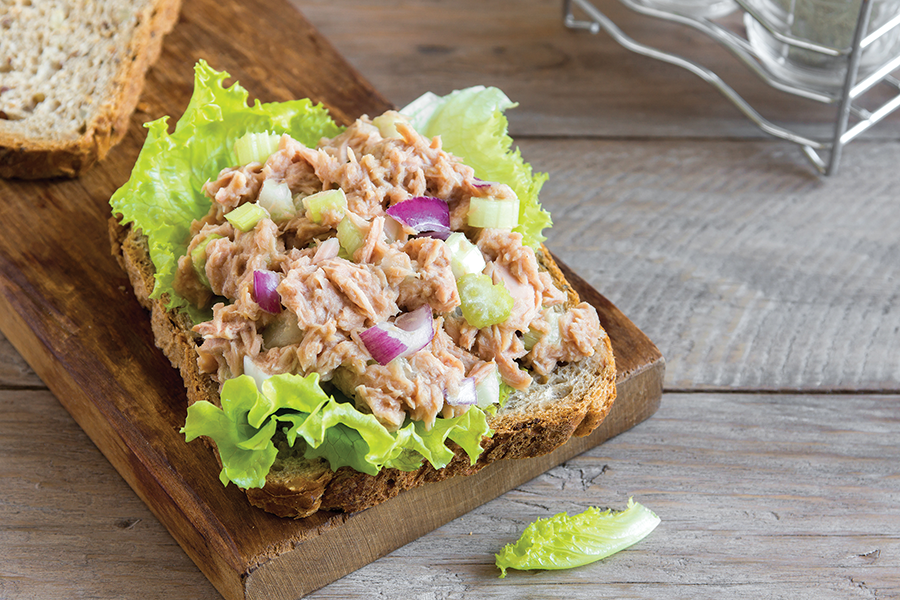 Giardia infection, also referred as giardiasis, is an intestinal infection caused by a microscopic parasite called Giardia lamblia. Giardia parasites are mainly found in the feces of an infected animal or human, but can often be detected in contaminated food, water, and soil, as well as on surfaces that has been exposed to the parasite.1 Humans and animals can become infected with giardia via ingestion of contaminated food or water or by putting contaminated objects or body parts in their mouth (e.g., fingers, toy). For most healthy people, giardiasis will resolve on its own with excretion of the parasitic remnants with a few weeks; however, for some people, it is possible for this parasite to persist in the intestines for several weeks to months.³
Giardia infection, also referred as giardiasis, is an intestinal infection caused by a microscopic parasite called Giardia lamblia. Giardia parasites are mainly found in the feces of an infected animal or human, but can often be detected in contaminated food, water, and soil, as well as on surfaces that has been exposed to the parasite.1 Humans and animals can become infected with giardia via ingestion of contaminated food or water or by putting contaminated objects or body parts in their mouth (e.g., fingers, toy). For most healthy people, giardiasis will resolve on its own with excretion of the parasitic remnants with a few weeks; however, for some people, it is possible for this parasite to persist in the intestines for several weeks to months.³
Who is most at risk
The giardia parasite is found all over the world, but is especially prevalent in areas where drinking water has been contaminated by fecal matter.⁴ People who frequently travel abroad may be more susceptible to giardia infection. For example, tourists can contract the infection after drinking contaminated water or consuming fruits or vegetables washed in contaminated water while visiting higher-populated countries where giardia is more prevalent. Individuals who work in childcare are also at higher risk due to exposure to fecal matter while changing diapers or assisting with toilet training.2 Young diaper-wearing or toilet-training children and children in a daycare setting are also at an increased risk for contracting giardiasis.
Transmission
A person who is infected with giardia can potentially spread it to others in a variety of ways, including sharing or touching objects or surfaces that have been contaminated with the parasite or coming into close physical contact with an infected individual. In adults, engaging in any type of sexual activity or unprotected intercourse with an infected individual is a common method of transmission.
Ingesting water while swimming in contaminated swimming pools, lakes, or rivers is another common method of giardiasis transmission. It also possible for the parasite to spread through unhygienic food handling (e.g., not washing hands after going to the bathroom and then touching food), as well as via consumption of food (e.g., fruits, vegetables) that has been washed in contaminated water.
Giardia parasites are unable to survive in high temperatures, making the transmission through cooked or heated food less common.⁵
Symptoms of giardiasis
There are several common symptoms associated with giardiasis, which tend to develop 1 to 2 weeks after exposure, including diarrhea, abdominal pain, nausea, and vomiting. Severe dehydration can result.⁶ Some individuals infected with giardia have minimal to no symptoms at all.1 People who do exhibit symptoms commonly experience 2 to 5 loose stools a day, and may become fatigued. Rare, but potentially serious, symptoms include fever, itchy skin, hives, and joint swelling. It is possible for giardiasis to result in weight loss and other health problems, such as reduced fat absorption, lactose intolerance, and vitamins A and B12 deficiencies.
For most adults and children, symptoms of giardiasis will resolve within 2 to 6 weeks.4 For some people, however, early symptoms can initially resolve only to re-emerge several weeks to months later. Severe infection with giardia can cause long-term problems, such as arthritis, irritable bowel syndrome, and diarrhea that is present for longer durations of time—sometimes persisting years after the initial infection. Children with chronic or severe giardiasis can be adversely affected developmentally, including stunted physical growth and mental development, malnutrition, and failure to thrive.
Diagnostic Tests
People with gastrointestinal illnesses may request lab testing to look for the “giardiagerms” in their feces. In some cases, the diagnosis of giardiasis will be unclear due to the absence of obvious physical symptoms. An individual infected with giardia may not always pass feces containing the parasites, which can make it difficult for physicians to determine if giardia parasites are the cause of the illness. Even if a person has giardia present in their feces, there may not be enough for a laboratory test to detect. To establish a diagnosis of giardiasis, multiple stool samples taken over a period of several days may be required.¹
treatment
According to the Mayo Clinic staff, children and adults who contract giardiasis but don’t exhibit symptoms or only exhibit mild symptoms do not require specific treatment unless they are likely to spread the infection to others.4 The infection typically resolves on its own in 2 to 6 weeks. However, if the symptoms are severe or persist beyond six weeks, giardiasis is typically treated with certain antibiotics, which include metronidazole (the most commonly used antibiotic for giardia infection), tinidazole, or nitazoxanide. For pregnant women, these antibiotics are not recommended due to their potential to cause harm to the fetus; thus, many physicians may delay treating the infection, if the symptoms are mild, until after the first trimester or later. If treatment is necessary, discuss the best available treatment option with your doctor.2,4
Prevention and control
Giardia parasites are very efficient in moving from one person to another. It doesn’t take many of the parasites to result in an infection. In order to help protect yourself and those around you from becoming ill, it is important to learn how to prevent the spread of giardia. Consider the following:2
Maintain proper hygiene Hand washing is the best way to prevent illness and the transmission of giardia. Disposable gloves should be used while cleaning and disinfecting your house.
Swim with caution. If you or your child is experiencing diarrhea, do not swim or let your child swim. When swimming in any body of water, avoid swallowing or ingesting the water. Before getting into a swimming pool, take a shower. Schedule regular toilet breaks for small children, and check diapers every hour. To keep germs and feces out of the water, diaper changing should be done in a restroom or diaper-changing facility, not at pool side or on the beach.
Limit animal handling. Direct contact with animal feces should be avoided at all times, particularly when handling young animals. Remain cautious of pets and their environment. Avoid touching your face or mouth with your hands while handling an animal, and wash your hands and surrounding area as quickly as possible after handling or cleaning up after animals.2
Avoid ingesting untreated or unscreened water. Untreated water or any water that has not been screened/filtered for parasites, bacteria, or other contaminants should not be ingested in any form (i.e., as drinking water, when used to wash foods, or in ice form). If you are unsure about the quality of your drinking water, choose a bottled beverage instead. If access to bottled or treated water is unavailable, purify available water (see sidebar “How to purify water”). This is especially applicable when traveling in regions where the water is deemed unsafe.⁷
Avoid certain foods. Avoid eating uncooked or unwashed foods when traveling in countries where the food and water supply might be deemed unsafe. Avoid vegetables and fruits that have been washed in potentially contaminated water.⁷
Clean and disinfect. Giardia is hard to eliminate from a contaminated environment, but you can reduce the chances of getting sick by properly disinfecting all areas that may be exposed to the parasite.¹
sources
United States Centers for Disease Control and Prevention site. Parasites: giardia. 9 Feb 2021. https://www.cdc.gov/parasites/giardia/index.html. Accessed 11 Aug 2021.
Medline Plus site. Giardia infections. National Institutes of Health. United States Library of Medicine. https://medlineplus.gov/giardiainfections.html. Accessed 11 Aug 2021.
United States Centers for Disease Control and Prevention site. Parasites: giardia. General information. 26 Feb 2021. https://www.cdc.gov/parasites/giardia/general-info.html#anchor_1614258695587. Accessed 11 Aug 2021.
Mayo Clinic site. Giardia infection (giardiasis). 16 Jul 2021. https://www.mayoclinic.org/diseases-conditions/giardia-infection/symptoms-causes/syc-20372786. Accessed 11 Aug 2021.
Delgado A. Giardiasis. 16 Sep 2018. Healthline site. https://www.healthline.com/health/giardiasis#causes. Accessed 11 Aug 2021.
United States Centers for Disease Control and Prevention site. Parasites: giardia. Illness and symptoms. 26 Feb 2021. https://www.cdc.gov/parasites/giardia/illness.html. Accessed 11 Aug 2021. United States Centers for Disease Control and Prevention site. Commercially bottled water. 28 Oct 2020. https://www.cdc.gov/healthywater/drinking/bottled/index.html. Accessed 11 Aug 2021





